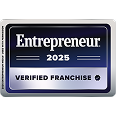You’re thinking of starting an insurance career path or exploring switching careers in this direction. You might even ultimately want to start a company of your own.
You certainly wouldn’t be the first to enter this dynamic field. As of 2023, just under 3 million people work in this industry in the United States. It’s no wonder. The sector is strong because people and businesses always need one or several of the many types of coverage on the market.
But it can be puzzling to figure out how to get into the insurance business, whether you’re nearly out of high school or have been in another line of work for years. Use this brief guide to help you understand the types of insurance jobs you can consider, the best degrees for the insurance industry (or if you even need one), and how to get a job in insurance.
An Introduction to Leading Insurance Career Paths
It’s not enough to simply say that you want to get into the business. The job categories here are very different and appeal to different types of people. Here’s a brief rundown of some of the leading areas of industry employment.
Agent or Broker
What’s the difference? Both job categories are primarily in the sales profession. You’ll sell policies to people who will become your policyholders and then provide ongoing services to those customers when they have questions, need to make claims or wish to upgrade or extend their coverage.
The difference between the professions is that an agent typically works for one company, while a broker might represent the policies of multiple carriers. Sometimes, the term independent insurance agent is used to mean a broker.
Whatever you’re called, you must be an organized self-starter who works well with people. You can even start your own insurance company if you are motivated to work for yourself and eager to make an income derived entirely from your efforts and achievements.
Underwriter
The underwriter determines whether a certain type of policy should be offered and how much it should cost. In other words, this person is responsible for determining the degree of risk any particular policy would entail and whether it’s worth presenting to the company’s agents.
It’s a delicate balance you’ll take on as an underwriter. If the insurance product is priced so high that the risk is reduced for your company, few will want or be able to buy it, and your agents will not promote it. If, however, the policy is priced too low, your company could suffer significant financial loss in claims action.
You must, therefore, be an analytical person who can work well in a team environment to take on this line of work.
Data Analyst
The job of examining policies isn’t done once the underwriter has shaped the policy and the agent or broker has started to sell it. The data analyst crunches the numbers once the product is on the market and assesses the ongoing risk and whether it was priced right.
Is the company losing money, or does it have a good product on the market? If it’s a loss, you might suggest a better rate or even the introduction of a new and better insurance product.
As a data analyst, you should enjoy working with numbers and being a part of a collaborative team.
Claims Adjuster
You’re a bit like a detective if you work in this job category. Adjusters get called in when policyholders make a claim (a financial settlement from their insurer). It could be anything from a fire destroying a home to an automobile being stolen or totaled in an accident or a hurricane or tornado rolling through a city and causing millions of dollars in damages to homes, businesses, and infrastructure.
The claims adjuster’s responsibility is to determine whether the claim is legitimate and how much should be paid out. This is where the detective work starts.
You might read police reports and witness statements and examine photos of the damage. In some cases, you might travel to the scene of the accident or catastrophe to see the damage for yourself. Then, you’ll determine a fair claim, one that will satisfy both the insurance company and the policyholder.
As a claims adjuster, you could work for one company or as a contractor with several insurance company clients. You must be well organized, with an analytical mind, and enjoy working with numbers.
Actuary
A risk analyst sees the big picture. Your concern isn’t about the risk of one policyholder making a claim but of thousands of claims as a result of such mass calamities as natural disasters, pandemics such as COVID, or climate change.
You’ll be a statistician, constantly examining statistics and assessing future risk and how your company should prepare for it. This is an insurance industry job for a mathematician with a highly analytical mind.
How to Get Into Insurance: Requirements for Your Insurance Career Path

Wondering how to get started in insurance? College helps. It’s not mandatory for every type of job in the industry or to get employed by every carrier, but it does increase your odds of employment.
Consider a bachelor’s or even a two-year associate’s degree in such fields as business, finance, economics, accounting, mathematics (for such fields as actuary and data analysis), or even psychology (to become an agent or broker).
Many colleges or universities even offer degrees in insurance. Depending on where you live, you can attend in person or find one that has courses online.
Regardless of your education, many states require a license to become an agent or broker, or a claims adjuster. Licensing requirements can also depend on the type of coverage you want to work.
Since the requirements vary so greatly by the state in which you wish to do business and other factors, you should use the internet to determine the specific educational requirements you’ll confront. Start your search with a query such as “How to become an insurance agent in (your state).”
In general, licensing requires a period of study and passing an exam to prove your knowledge of the field and the career path you’ve taken. Many larger companies will first hire employees and then help them obtain the licensing required to be an agent.
How to Get Into Insurance: Finding a Job
If you have your licensing and possibly a college degree to your advantage, your next step is to find a job. In many respects, this is no different than the challenges involved in getting hired, even if you’re not on an insurance career path.
Company Websites
Make a list of large and small insurers with offices near you. Then, check the careers page on their websites. You’ll generally find up-to-date information with job descriptions and pre-requirements. Consult the sites frequently because the hiring needs can quickly change.
Job Boards
Sites like Indeed, Monster, ZipRecruiter, and others are major sources of hiring news. If you sign up with them and submit your resume and information about what you’re looking for, most will send notifications when new and relevant opportunities arise.
Networking
This is a matter of increasing your voice by bringing others voluntarily into the search with you. Start by asking yourself who you know who’s already in the business. Who’s the agent for your auto, renters, or homeowners policies? Ask your parents and other family members who they use.
Then, ask your friends and neighbors who they know. Use social media to tell your small world that you want to get into the business and ask who they know who can help. You might not find anyone who has all the answers, but anyone in the business might be able to give you the name and contact information of just one person who can make all the difference.
Start an Insurance Company of Your Own With Freeway Insurance
You might not have to be hired by any company. You can start your own. As a dedicated and highly motivated entrepreneur, you can become a Freeway Insurance franchise operator.
Work for yourself, but have the top-tier training and support of one of the largest and most reputable personal lines brands in the United States. We welcome people who are looking to start an insurance franchise with the Freeway name and brand. What you get is the top-level training you need, access to a wide range of major national and regional carriers, and help and guidance moving forward as you need it.
Find out how to build a financially rewarding insurance franchise. Contact us online or by calling 888-996-0195 to speak to a representative today.


